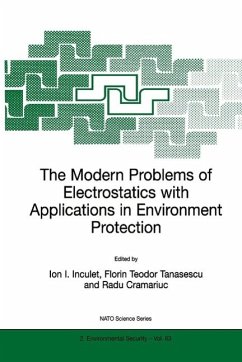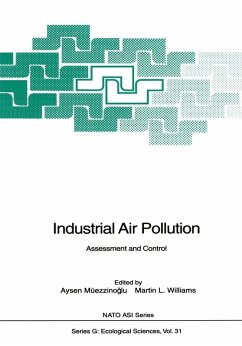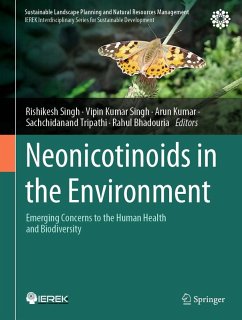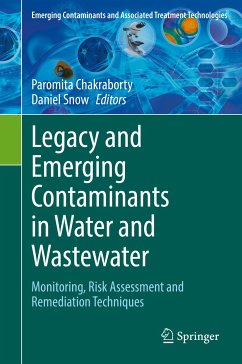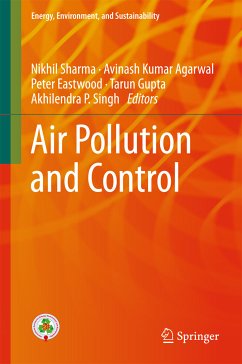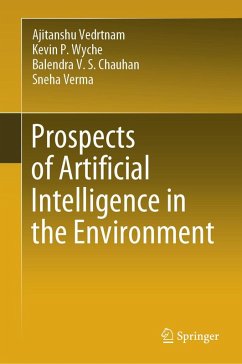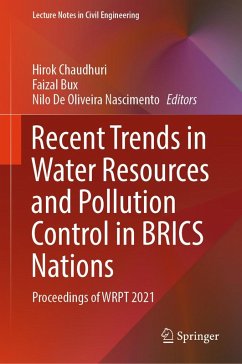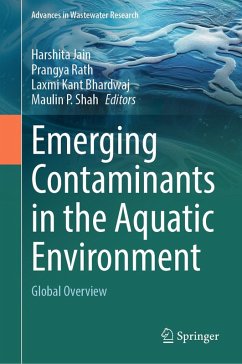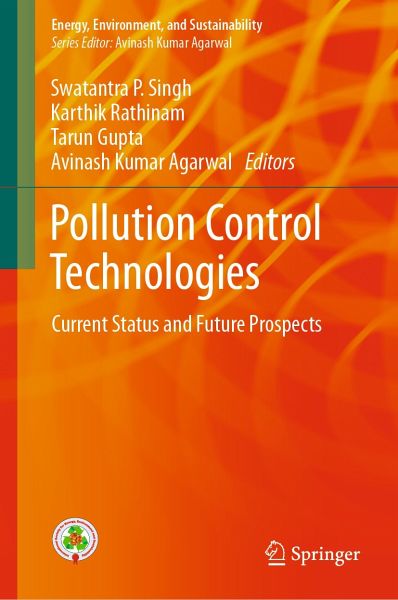
Pollution Control Technologies (eBook, PDF)
Current Status and Future Prospects
Redaktion: Singh, Swatantra P.; Agarwal, Avinash Kumar; Gupta, Tarun; Rathinam, Karthik
Versandkostenfrei!
Sofort per Download lieferbar
88,95 €
inkl. MwSt.
Weitere Ausgaben:

PAYBACK Punkte
44 °P sammeln!
< p="">This monograph is based on pollution control technologies available to deal with water and air pollution. It includes removal of variety of pollutants including arsenic, chromium, uranium, pesticides and arsenic from water using adsorption technique. In addition, this book deals with the sampling and removal of microplastics using various techniques. The contents also focus on the role of membrane technology in water and wastewater treatment, and particulate matter air pollution and its control techniques. This volume will be a useful guide for researchers, academics and scientists.^
< p="">
This monograph is based on pollution control technologies available to deal with water and air pollution. It includes removal of variety of pollutants including arsenic, chromium, uranium, pesticides and arsenic from water using adsorption technique. In addition, this book deals with the sampling and removal of microplastics using various techniques. The contents also focus on the role of membrane technology in water and wastewater treatment, and particulate matter air pollution and its control techniques. This volume will be a useful guide for researchers, academics and scientists.
^
This monograph is based on pollution control technologies available to deal with water and air pollution. It includes removal of variety of pollutants including arsenic, chromium, uranium, pesticides and arsenic from water using adsorption technique. In addition, this book deals with the sampling and removal of microplastics using various techniques. The contents also focus on the role of membrane technology in water and wastewater treatment, and particulate matter air pollution and its control techniques. This volume will be a useful guide for researchers, academics and scientists.
^
Dieser Download kann aus rechtlichen Gründen nur mit Rechnungsadresse in A, B, BG, CY, CZ, D, DK, EW, E, FIN, F, GR, HR, H, IRL, I, LT, L, LR, M, NL, PL, P, R, S, SLO, SK ausgeliefert werden.




